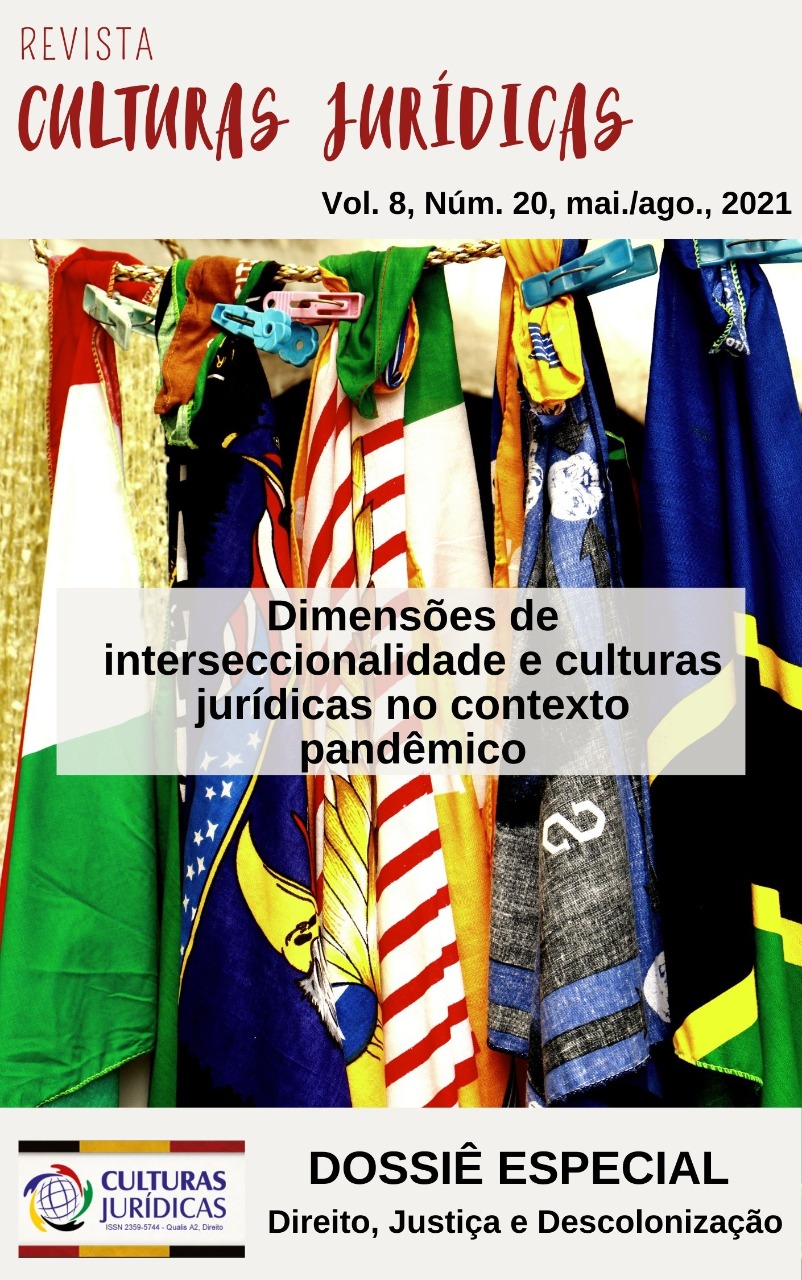A CLÓVIS MOURA'S QUILOMBOLA HERMENEUTICS
CRITICAL LEGAL THEORY, RACE AND DECOLONIZATION
Abstract
The article presents contributions from the Clóvs Moura’s thought to the critical legal theory. First, it develops five elements of Moura’s work that are useful for legal research: a. the relationship between the African diaspora and science; b. the critique of colonialism; c. the impact of black agency on law; e. the handling with legal sources to deal with the history of the black population; e. and the relationship between the world of work, racism and national identity. The second part presents three contributions to legal hermeneutics based on the centrality given to the quilombo by Moura’s theory, namely: a. the rejection of the official idea of “Brazilianness” in the legal culture; b. quilombola ethics as semantics of human rights; c. the links between whiteness and interpretation of law. It is concluded that the work of Clóvis Moura is fundamental for the introduction of the “life black” in legal theory and practice.





